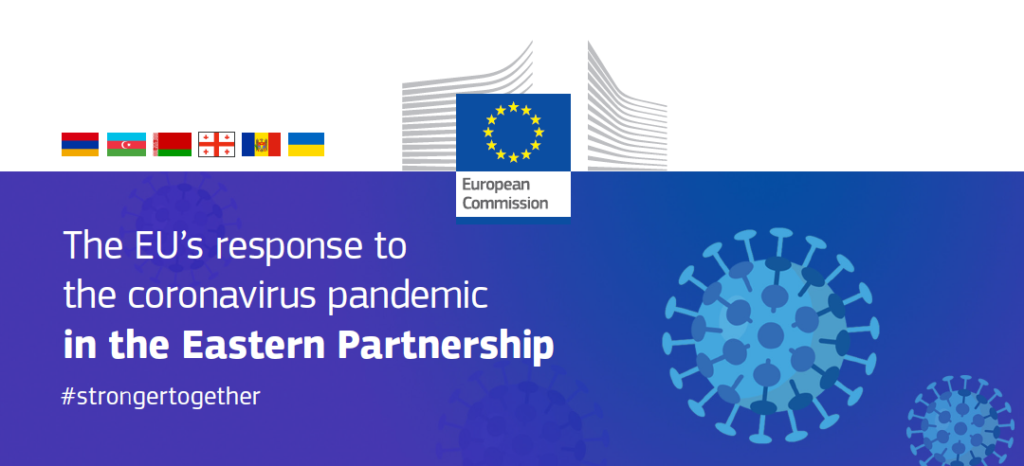 As part of its global response to the coronavirus outbreak, the European Commission is mobilising an emergency support package for Armenia, Azerbaijan, Belarus, Georgia, the Republic of Moldova, and Ukraine: €140 million for immediate needs; up to €700 million for the short and medium term to support the social and economic recovery of the region.
As part of its global response to the coronavirus outbreak, the European Commission is mobilising an emergency support package for Armenia, Azerbaijan, Belarus, Georgia, the Republic of Moldova, and Ukraine: €140 million for immediate needs; up to €700 million for the short and medium term to support the social and economic recovery of the region.
Responding to immediate needs includes:
- Support to the health sector (€30 million)
- Working with the WHO to supply medical devices and personal equipment such as ventilators, laboratory kits, masks, goggles, gowns, and safety suits.
- Training medical and laboratory staff, and raising awareness across the six countries.
- Support for the most vulnerable groups in society (€11.3 million)
- Grants of up to €60,000 to civil society organisations to respond to immediate needs, such as supporting local schools with distance learning – already available through the EU’s regional “Rapid Response Mechanism”.
- Launch of the “Eastern Partnership Solidarity Programme” to target the most affected parts of the populations, with sub-grants to smaller, local organisations.
Limiting the social and economic impact
Working closely with International Financial Institutions (IFIs) and financing institutions from EU Member States to provide a coordinated European response as TEAM EUROPE:
- New €100 million support programme to help SMEs, including self-employed and others to easily access credit and boost their businesses after the crisis.
- €200 million of existing credit lines and grants to SMEs in local currency through the EU4Business Initiative.
- €500 million available for the EU’s Neighbourhood through the EU’s major de-risking instrument, the European Fund for Sustainable Development (EFSD) to rapidly provide liquidity across the region.
What is the EU already doing for the Eastern Partnership to face the coronavirus emergency?
Armenia
- Over 3,000 vulnerable households, with elderly people and people with disabilities and large families in Shirak, Tavush and Lori regions will receive humanitarian aid packages thanks to the support of the European Union.
Azerbaijan
- With EU funds, the Ganja Vocational Education and Training school will purchase equipment machinery to produce masks for the Ganja area.
Belarus
- Thanks to EU cross-border cooperation projects linking communities in Belarus, Ukraine and Poland, emergency medical services such as ambulances and respirators are available in the hospitals to help doctors fight against the coronavirus pandemic.
Georgia
- A Georgian producer of medical textiles has produced 40,000 medical gowns within a week after he was able to purchase 12 additional sewing machines thanks to a micro-grant provided by the EU.
Republic of Moldova
- EU projects in Moldova are already working to provide protection sets such as gloves and masks for vulnerable people and medical staff, as well as sterilizers for equipment across the country.
Ukraine
- The EU supports the building of community resilience through assistance to vulnerable people, transition to online education, fighting disinformation and strengthening cultural diversity and creativity online.



